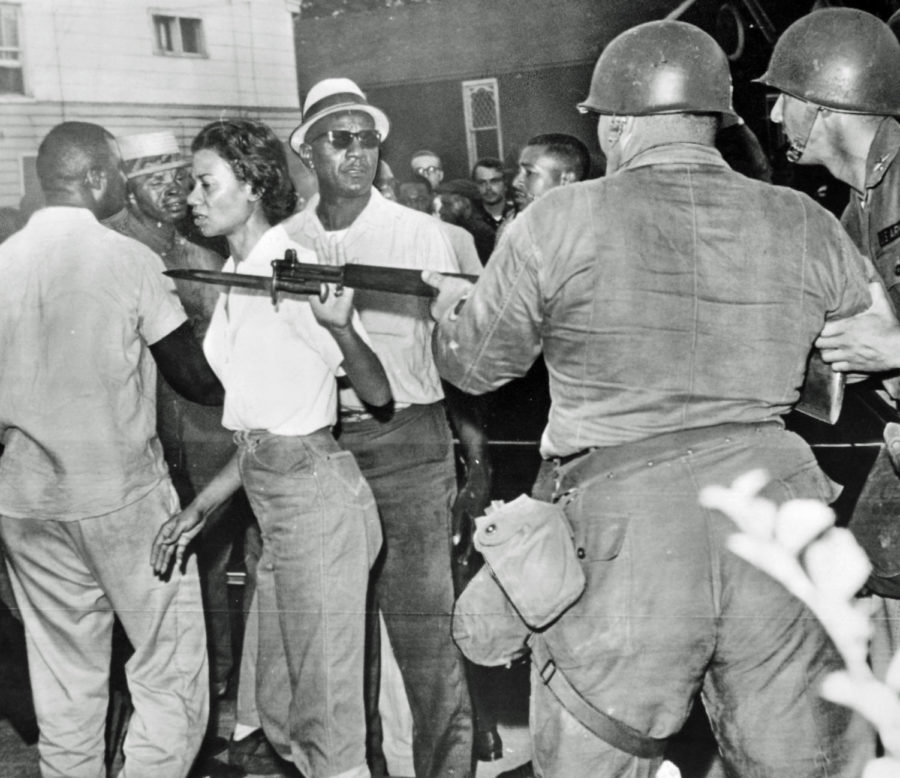Suza: Another Black son killed
Walter Suza calls for unity as more black men are killed and human rights seem to be fleeing away from black and brown citizens of the United States.
May 27, 2020
Editor’s Note: This is the fourth of a collective series conducted by Walter Suza. There was also an edit made to the amount of time the officer who killed George Floyd held his knee to Floyd’s neck.
Another one of our Black sons died on Memorial Day.
George Floyd died after he was forced to the ground and a white police officer pressed his knee against his neck — for eight minutes and forty-six seconds until his body became limp.
No matter Floyd’s alleged crime, there was no justification for killing him because he had resisted being pinned to the ground.
Audio from a bystander’s video indicates Floyd was pleading with the officers because he couldn’t breathe. Attempts from bystanders to get the officer to release Mr. Floyd were simply ignored.
I feel angry. I feel dejected. I feel frustrated. I feel sad.
And if you’re a white American, the killing of Floyd should outrage you also.
So say something.
“In the end, we will remember not the words of our enemies, but the silence of our friends,” Martin Luther King Jr. said.
Don’t stay silent.
The killing of Black people, especially Black men, is a real danger for many of us. Why does our nation tolerate the fact that one in every 1,000 Black men is at risk of being killed by police?
A study in the journal Proceedings of the National Academy of Sciences of the United States of America found Black women and men, Native American women and men and Latino men face a higher likelihood of being killed by police than white women and men.
For Floyd, I do not want to hear the usual excuses that “he must have done something wrong.” Seriously, is suspicion that he was committing forgery a justified reason to kill the man?
This country claims to be a Christian nation yet we allow people to be brutally killed in our streets. We know the law, and it says “You shall not murder.”
Well, if you wonder, “when will I stop with this racism stuff,” my answer is I wish I could. But I must continue. Because this is on my mind all the time. Black people experience trauma with these police killings. There is a psychological cost of being Black or Brown in the United States.
Yet there is no break from worrying about their safety in their own homes and public spaces.
Black and Brown people wish to be happy and free too. However, restrictions are placed on Black and Brown people making it strenuous to enjoy our country. For example, police are often called when black people are participating in normal, outdoor family activities.
The most recent and outrageous incident involves a white woman threatening to call the police on a black man in Central Park. The woman was the one in the wrong for not keeping her dog on the leash, but she’s heard saying to the Black man, “I will tell them you are an African American man” as she calls the police.
The woman in Central Park must have known what she was doing — the police would more likely believe her because she is white and he is Black. Unfortunately, many such calls to the police do not end well for the Black men, making people like the woman in Central Park complicit in the killing of Black people.
Our country needs to change.
If you think I am stuck in the racial injustice quagmire, please take the time to watch “13th,” a documentary about the history of racial inequality and mass incarceration of black Americans.
Watching the documentary, I was astounded to learn 25 percent of all incarcerated humans are found in United States federal and state prisons — and for monetary gain because inmates provide cheap labor.
According to the NAACP, “If African Americans and Hispanics were incarcerated at the same rates as whites, prison and jail populations would decline by almost 40 percent.”
We are called to pledge our allegiance to the flag of the United States of America, and to the republic for which it stands, one nation under God, indivisible, with liberty and justice for all!
We need to work together to bring liberty and justice for all.
There are no easy answers or quick solutions to these centuries-old ways of operating, which continue to oppress Black and Brown people. However, one place to begin is for white people to hesitate before calling the police on Black people — assume they are innocent before proving them guilty.
Second, there is a need to reevaluate the Supreme Court protection that makes it harder to bring justice for the killing of innocent people by police. More work is needed to wipe out racial bias in our police systems.
Third, the First Step Act is a good start. But this federal law only scratches the surface of the mass incarceration system that has a strong foundation in state laws — 87 percent of prison inmates are locked up in state prisons. This makes it essential to fight racial bias that causes more people of color to end up in state prisons.
President Abraham Lincoln taught us, “Let us at all times remember that all American citizens are brothers of a common country, and should dwell together in the bonds of fraternal feeling.”
This is why all of us — white, Black and Brown citizens of the United States — must come together to counter the elimination of black and brown human rights.
Walter Suza, adjunct associate professor in the department of agronomy.







